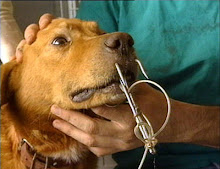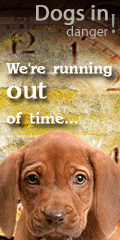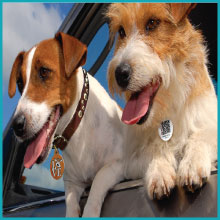What’s a Bone Treat?
FDA has received about 68 reports of pet illnesses related to "bone treats,” which differ from uncooked butcher-type bones because they are processed and packaged for sale as dog treats. A variety of commercially-available bone treats for dogs—including treats described as “Ham Bones,” “Pork Femur Bones,” “Rib Bones,” and “Smokey Knuckle Bones”—were listed in the reports. The products may be dried through a smoking process or by baking, and may contain other ingredients such as preservatives, seasonings, and smoke flavorings.
So if you’re planning to give your dog a stocking full of bone treats this holiday season, you may want to reconsider. According to Carmela Stamper, a veterinarian in the Center for Veterinary Medicine (CVM) at the FDA, “Giving your dog a bone treat might lead to an unexpected trip to your veterinarian, a possible emergency surgery, or even death for your pet.”
Illnesses Reported
Illnesses reported to FDA by owners and veterinarians in dogs that have eaten bone treats have included:
- Gastrointestinal obstruction (blockage in the digestive tract)
- Choking
- Cuts and wounds in the mouth or on the tonsils
- Vomiting
- Diarrhea
- Bleeding from the rectum, and/or
- Death. Approximately fifteen dogs reportedly died after eating a bone treat.
The reports, sent in by pet owners and veterinarians, involved about 90 dogs (some reports included more than one dog). In addition, FDA received seven reports of product problems, such as moldy-appearing bones, or bone treats splintering when chewed by the pet.
Tips to Keep Your Dog Safe
Here are some tips to keep your dog safe:
- Chicken bones and other bones from the kitchen table can cause injury when chewed by pets, too. So be careful to keep platters out of reach when you’re cooking or the family is eating.
- Be careful what you put in the trash can. Dogs are notorious for helping themselves to the turkey carcass or steak bones disposed of there.
- Talk with your veterinarian about other toys or treats that are most appropriate for your dog. There are many available products made with different materials for dogs to chew on.
“We recommend supervising your dog with any chew toy or treat, especially one she hasn’t had before,” adds Stamper. “And if she ‘just isn’t acting right,’ call your veterinarian right away!”
To report a problem with a pet food or treat, please visit FDA’s Web page on “How to Report a Pet Food Complaint.”
















